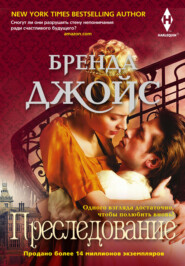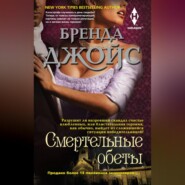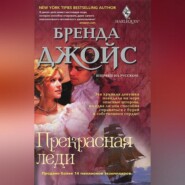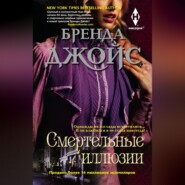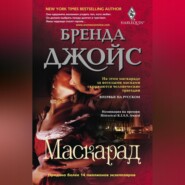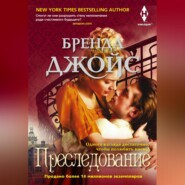По всем вопросам обращайтесь на: info@litportal.ru
(©) 2003-2025.
✖
The Prize
Автор
Год написания книги
2019
Настройки чтения
Размер шрифта
Высота строк
Поля
Mama had been tolerant of her husband and her daughter. Both of Virginia’s brothers had died at birth, first Todd and then little Charles when she was six. That was when Mama had first looked the other way about the britches, the horses, the hunting. She had cried for weeks, prayed in the family chapel and, somehow, found peace. After that, her smiles and sunny warmth had returned—but there had been no more pregnancies, as if she and Papa had made a silent pact.
Virginia couldn’t comprehend why any woman would even want to be a lady. A lady had to follow rules. Most of the rules were annoying, but some were downright oppressive. Being a lady was like being a slave who didn’t have the fine home of Sweet Briar. Being a lady was no different from being in shackles.
Virginia paused before the headmistress’s office, the decision already made. Whether Sarah Lewis had spoken the truth or not, it no longer mattered. It was time to go home. In fact, making the decision felt good. For the first time since her parents had died, she felt strong—and brave. It was a wonderful way to feel. It was the way she had felt right up until the minister had come to their door to tell her that her parents were dead.
She knocked on the fine mahogany door.
Mrs. Towne, a plump, pleasant lady, gestured her inside. Her kind eyes held Virginia’s, solemn now, when usually they held dancing lights. “I’m afraid you will have to learn to dance sooner or later, Miss Hughes.”
Virginia grimaced. The one person she almost liked at the school was the headmistress. “Why?”
Mrs. Towne was briefly surprised. “Do sit down, my dear.”
Virginia sat, then realized her knees were apart, her hands dangling off the arms of the chair, and quickly rearranged herself, not because she wished to be proper, but because she did not want to antagonize the headmistress now. She clamped her knees together, clasped her hands and thought about how fine it would be to be in her britches and astride her horse.
Mrs. Towne smiled. “It isn’t that difficult to cooperate, dear.”
“Actually, it is.” Virginia was also very stubborn. That trait her mother had bemoaned.
“Virginia, ladies must dance. How else will you attend a proper party and enjoy yourself?”
Virginia didn’t hesitate. “I have no use for parties, ma’am. I have no use for dancing. Frankly, it’s time for me to go home.”
Mrs. Towne stared in mild surprise.
Virginia forgot about sitting properly. “It’s not true, is it? What that wicked Sarah Lewis said? Surely I am not to remain here—forgotten—a prisoner—for another three years?”
Mrs. Towne was grim. “Miss Lewis must have overheard me speaking privately with Mrs. Blakely. My dear, we did receive such instructions from your uncle.”
Virginia was shocked speechless and she could only stare. It was a moment before she could even think.
For a while, she had been afraid that Eastleigh would send for her, forcing her to go to England, where she had no wish to go. That, at least, was one dilemma she did not have to face. But he would lock her up in this school for three more years? She’d already been here six months and she hated it! Virginia would not have it. Oh, no. She was going home.
Mrs. Towne was speaking. “I know that three years seems like a very long time, but actually, considering the way you were raised, it is probably the amount of time we need to fully instruct you in all the social graces you shall need to succeed in society, my dear. And there is good news. Your uncle intends to see you wed upon your majority.”
Virginia was on her feet, beyond shock. “What?”
Mrs. Towne blinked. “I should have known you would be dismayed by the proposal. Every well-born young lady marries, and you are no exception. He intends to find a suitable husband for you—”
“Absolutely not!”
Mrs. Towne was now the one speechless.
Anger consumed Virginia. “First he sends me here? Then he thinks to lock me away for three years? Then he will send me to another prison—a marriage with a stranger? No, I think not!”
“Sit down.”
“No, Mrs. Towne. You see, I will marry one day, but I will marry for love and only love. A grand passion—like my parents had.” Tears blurred her vision. There would be no compromise. One day she would find a man like her father, the kind of love her parents had so obviously shared. There would be—could be—no compromise.
“Virginia, sit down,” Mrs. Towne said firmly.
Virginia shook her head and Mrs. Towne stood. “I know you have suffered a terrible tragedy, and we all feel for you, we do. But you do not control your fate, child, your uncle does. If he wishes you to stay here until your majority, then so it shall be. And I am sure you will come to be fond of your future husband, whoever he may be.”
Virginia couldn’t speak. Panic consumed her. A stranger thought himself to be in control of her life! She felt trapped, as if in a cage with iron bars, worse, the cage was being immersed in the sea and she was drowning!
“My dear, you must make an effort to become a part of the community here. You are the one who has chosen to be disdainful of the other fine young women here. You have not tried, even once, to be friendly or amusing. You have set yourself apart from the moment you arrived and we allowed that, being respectful of your grief. I know why you held your head so high, my dear, but the others, why, they think you prideful and vain! It is time for you to make amends—and friends. I expect you to make friends, Virginia. And I expect you to excel in your studies, as well.”
Virginia hugged herself. Had the others really thought her too proud and vain? She didn’t believe it. They all despised her because she was from the country, because she was so different.
“You are so clever, Virginia. You could do so well here if you bothered to try.” Mrs. Towne smiled at her.
Virginia swallowed hard. “I can’t stay here. And they don’t like me because I am different! I’m not fancy and coy and I don’t faint at the sight of a handsome man!”
“You have chosen to be different, but you are a beautiful girl from a good family, and in truth, that makes you no different at all. You must cease being so independent, Virginia, and you will be very happy here, I promise you.” Mrs. Towne walked over to her and clasped her thin shoulder. “I am sure of this, Virginia. I want nothing more than for you to become a successful graduate of this school—and a very happy young lady.”
Virginia forced a brittle smile. There was nothing more to say. She was not going to stay at the school, and she was not going to let her uncle the earl choose a husband for her—and that was that.
Mrs. Towne smiled at her warmly. “Do give up your rebellious nature, my dear. The rewards will be great if you do.”
Virginia managed to nod. A moment later, the interview was over and she fled. As soon as she was alone on her cot in the dormitory, Virginia began to plan her escape.
TWO DAYS LATER, VIRGINIA performed her morning ablutions as slowly as she could. The other young ladies were filing out of the dormitory while she continued to wash her hands. Early morning light was filtering through the dormitory’s skylights. From the corner of her eye, Virginia watched the last of the young ladies leaving the long, rectangular room. Miss Fern paused at the door. “Miss Hughes? Are you unwell?”
Virginia managed a weak smile. “I’m sorry, Miss Fern, but I am so dizzy and light-headed today.” She hung on to the bureau beside the washstand.
Miss Fern returned to her, touching her forehead lightly. “Well, you do not have a fever. But I suppose you should go to Dr. Mills directly.”
“I think you are right. I must be coming down with influenza. I need a moment, please,” Virginia said, sitting down on the edge of her narrow bed.
“Take a moment, then.” Miss Fern smiled, walked down the aisle between the twenty beds and finally left the room.
Virginia waited, silently counting, “One-two-three,” then she leapt to her feet. She hurried across the aisle to the fourth bed. She went right to the bureau there and began rummaging through contents that did not belong to her. Guilt assailed her, but she ignored it.
Sarah Lewis always had pin money, and Virginia quickly found twelve dollars and thirty-five cents. She took every penny, leaving an unsigned note instead. In it, she explained that she would pay the sum back as soon as possible. Still, it felt terrible being reduced to thievery and she could almost feel her mother’s disapproval as she watched over her daughter from heaven.
“I will pay Sarah back, Mama, every darned penny,” she whispered guiltily. But there was just no choice. She needed fare for a coach and an inn. As brave as she was, she didn’t think she could walk the entire eighty miles to Sweet Briar without several nights’ rest and a few good meals.
Virginia then reached under her bunk. In her cloak—despite the spring weather, the nights remained cool—she had wrapped her few precious personal belongings: her mother’s cameo necklace, her father’s pipe and a horsehair bracelet Tillie had made for her when she was eight. She also had an extra shirtwaist, gloves and bonnet. The entire cloak was bundled up and tied with string. Virginia went to a window at one end of the room, heaved it open and dropped the bundle to the sidewalk below.
Virginia somehow slowed her eager legs and walked demurely downstairs, passing two of the school’s staff as she did so. Finally she reached the end of the hall. Ahead lay the gracious, high-ceilinged foyer of the building. There, marble floors vied with dark wood columns and even darker wood paneling. The front door wasn’t kept locked during the day, as no student ever walked out. Virginia looked carefully around. This was her chance to escape, but if someone saw her now, it was over before her journey had even begun.
Footsteps sounded from a different hall. Virginia darted back around the corner, not daring to breathe, hearing two voices and recognizing them as belonging to the music master and the French professor. She assumed they would cross the foyer and come her way—all of the classrooms lay behind her. Virginia looked around and slipped into the janitor’s closet.
The pair of instructors passed.
Virginia was sweating. She had also lost all patience. She cracked open the door and saw that the hallway was empty. She slipped out, peered into the foyer and found that empty, too. She inhaled hard for courage and rushed across, flinging open the huge and heavy front door. She stepped outside into bright spring sunlight and she smelled and even tasted freedom. God, it was good!
She ran down the walk and out the wrought-iron front gates, down the public sidewalk, around the corner, and found her bundled cloak. Virginia seized it and ran again.







